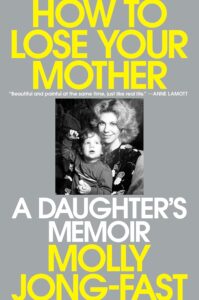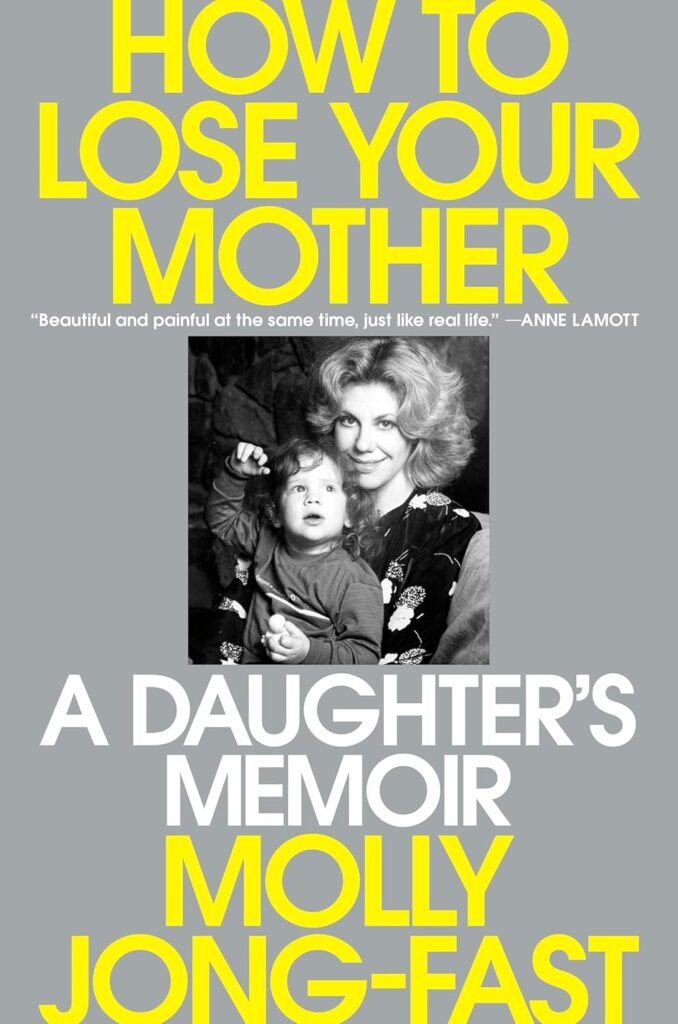In the landscape of 20th-century philosophy, few figures loom as large as Jean Paul Sartre. Born in Paris in 1905, Sartre emerged as the leading voice of existentialism, a philosophical movement that placed human freedom and choice at its center. His declaration that “existence precedes essence” revolutionized how we understand human nature, suggesting we are not born with predetermined purposes but rather create ourselves through our choices and actions. Through his novels, plays, and philosophical treatises, Sartre articulated a vision of humanity both terrifying and liberating—we are “condemned to be free,” responsible for creating meaning in an indifferent universe.
Sartre’s intellectual journey unfolded against the backdrop of two world wars, the rise of fascism, and the Cold War. These historical forces shaped his thinking about freedom, responsibility, and political engagement. His lifelong partnership with fellow philosopher Simone de Beauvoir further enriched his ideas, as they together navigated the complexities of freedom in personal relationships. This article explores Sartre’s philosophical contributions, his most influential works, and his lasting impact on modern thought—revealing why, decades after his death in 1980, his ideas continue to challenge and inspire us to confront the fundamental questions of human existence.
The Early Life and Intellectual Development of Jean Paul Sartre
Jean-Paul Charles Aymard Sartre was born on June 21, 1905, in Paris, France. His father, Jean-Baptiste Sartre, a naval officer, died when Sartre was only two years old. This early loss would later influence Sartre’s philosophical reflections on absence and nothingness. Following his father’s death, Sartre moved with his mother, Anne-Marie Schweitzer (cousin of the famed humanitarian Albert Schweitzer), to her parents’ home in Meudon.
Under the guidance of his grandfather, Charles Schweitzer, a respected teacher of German, young Sartre was introduced to classical literature at an early age. This early immersion in literature fostered Sartre’s lifelong passion for writing. However, his childhood was not without challenges. When his mother remarried, the family relocated to La Rochelle, where Sartre experienced bullying, partly due to his physical appearance—he was small in stature and had a wandering right eye.
Sartre’s formal education took place at prestigious institutions, including the Lycée Henri IV in Paris and later the École Normale Supérieure, where he graduated in 1929. It was during his university years that Sartre encountered the philosophical ideas that would shape his thinking. He became interested in phenomenology after reading Henri Bergson’s essay “Time and Free Will.” At the École Normale Supérieure, Sartre formed important intellectual relationships, including his lifelong partnership with Simone de Beauvoir, whom he met in 1929.
After completing his education, Sartre worked as a high school teacher in Le Havre, Laon, and Paris between 1931 and 1945. His teaching career was interrupted twice: first for a year of study in Berlin, where he studied Edmund Husserl’s phenomenological philosophy, and later when he was drafted into the French Army during World War II. Sartre was captured by German troops in 1940 and spent nine months as a prisoner of war, during which time he read Martin Heidegger’s “Being and Time”—a work that would significantly influence his own philosophical development.
Sartre’s Existentialism: A Philosophy of Freedom and Responsibility
At the heart of Sartre’s philosophical contribution lies existentialism, a perspective that places human freedom and choice at its center. Unlike philosophical systems that begin with abstract principles, Sartre’s existentialism starts with the concrete reality of human existence. His famous dictum “existence precedes essence” reverses traditional philosophical thinking, which had long held that humans possess an inherent nature or essence that defines them.
For Sartre, humans first exist and then, through their choices and actions, create their essence. This radical freedom is not something we can escape—we are, in Sartre’s words, “condemned to be free.” Even choosing not to choose is itself a choice for which we bear responsibility. This perspective emerged partly as a response to deterministic views that explained human behavior through external forces like biology, psychology, or social conditions.
“Man is condemned to be free; because once thrown into the world, he is responsible for everything he does. It is up to you to give life a meaning.”
Sartre’s existentialism is not merely theoretical but has profound ethical implications. Since we create ourselves through our choices, we bear complete responsibility for who we become. Moreover, Sartre argued that in choosing for ourselves, we implicitly choose for all humanity, as our choices affirm what we believe humans should be. This creates an enormous weight of responsibility that can lead to what Sartre called “anguish”—the emotional response to recognizing our absolute freedom and responsibility.
Despite this anguish, Sartre’s existentialism is ultimately humanistic. By placing freedom at the center of human existence, he affirms our capacity to create meaning and value in a world that does not come with predetermined purposes. In his 1946 lecture “Existentialism Is a Humanism,” Sartre defended existentialism against charges of pessimism, arguing that it is instead a philosophy of optimism and action, as it places human destiny in our own hands.
Deepen Your Understanding of Existentialism
Explore the core concepts of Sartre’s existentialist philosophy with our comprehensive guide. Perfect for students and curious minds alike.
Phenomenology in Sartre’s Philosophical Method
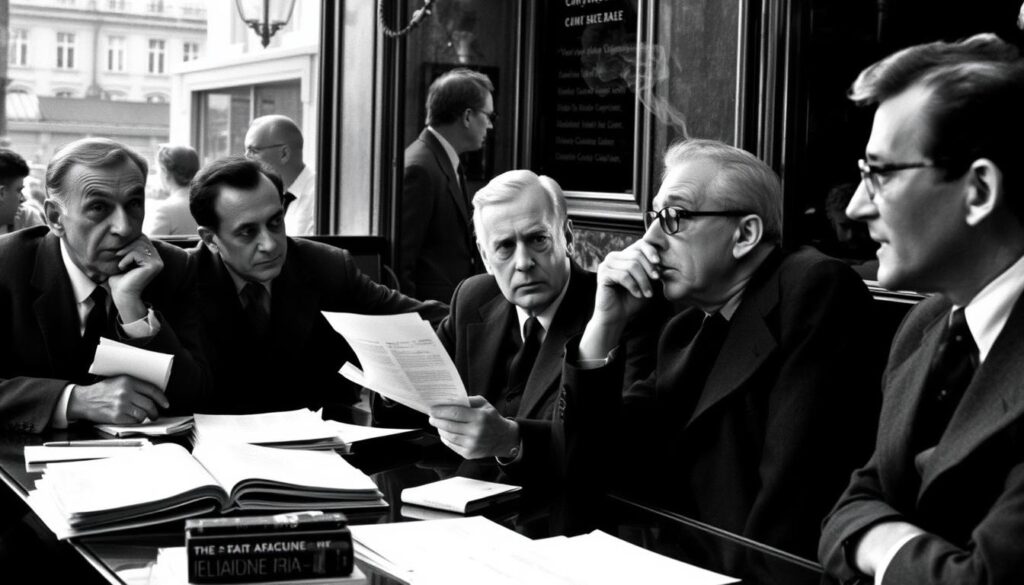
Sartre’s philosophical methodology was deeply influenced by phenomenology, particularly the work of Edmund Husserl. Phenomenology is concerned with the study of consciousness and how objects appear to consciousness. However, Sartre developed his own distinctive approach to phenomenological analysis that diverged from Husserl’s in significant ways.
In his early works, such as “The Transcendence of the Ego” (1936), “Sketch for a Theory of the Emotions” (1939), and “The Psychology of Imagination” (1940), Sartre employed phenomenological methods to analyze various aspects of human consciousness. Unlike Husserl, who believed in the possibility of bracketing or suspending judgment about the external world, Sartre maintained that consciousness is always consciousness “of something.” This intentionality of consciousness means that consciousness is defined by its relation to objects outside itself.
Sartre’s phenomenology is characterized by his conception of consciousness as transparent, having no “inside,” but rather as a “fleeing” towards the world. For Sartre, consciousness is not a container filled with contents but is defined by its directedness toward objects. This understanding led him to reject the Freudian notion of the unconscious, as he believed that all consciousness is self-conscious, even if not reflectively so.
Another distinctive feature of Sartre’s phenomenological approach is his analysis of nothingness. In “Being and Nothingness,” Sartre argues that human consciousness has the unique ability to experience “nothingness.” When we look for someone who is absent, like Pierre who is not at the café, we experience his absence as a form of nothingness that is revealed to consciousness. This capacity to experience nothingness is, for Sartre, a fundamental characteristic of human consciousness and the foundation of human freedom.
Sartre’s phenomenological method also involves a careful analysis of concrete human experiences. Rather than starting with abstract principles, he begins with specific experiences—like shame, love, or conflict—and analyzes their essential structures. This approach allows him to uncover the fundamental features of human existence and the nature of our relationships with others and the world.
Being and Nothingness: Sartre’s Philosophical Masterpiece
“Being and Nothingness” (1943), subtitled “An Essay on Phenomenological Ontology,” stands as Sartre’s philosophical magnum opus. Written during the German occupation of France in World War II, this dense, complex work presents Sartre’s comprehensive account of human existence and consciousness. The book’s central concern is the nature of being, which Sartre divides into two fundamental types: being-in-itself (être-en-soi) and being-for-itself (être-pour-soi).
Being-in-itself refers to the non-conscious world of objects and things. It is characterized by fullness, identity with itself, and a lack of potentiality or possibility. A rock simply is what it is, with no gap between what it is and what it could be. Being-for-itself, by contrast, refers to human consciousness, which is characterized by nothingness, non-identity with itself, and the constant projection toward possibilities. Human consciousness is never identical with itself because it is always separated from itself by nothingness.
“Man is nothing else but what he makes of himself. Such is the first principle of existentialism.”
This nothingness at the heart of human consciousness is the source of human freedom. Because we are not fully determined by what we are (our facticity), we are free to choose what we will become (our transcendence). This freedom is not a property we possess but constitutes our very being. We cannot escape our freedom—we are “condemned to be free”—and must bear the responsibility for our choices and actions.
Sartre’s analysis extends to our relationships with others, which he sees as fundamentally conflictual. In his famous analysis of “the look” (le regard), Sartre argues that when we are looked at by another person, we experience ourselves as objects for their consciousness, which threatens our freedom and subjectivity. This leads to a constant struggle for recognition and dominance in human relationships, captured in Sartre’s famous line from his play “No Exit”: “Hell is other people.”
Despite its bleak assessment of human relationships, “Being and Nothingness” offers a path to authenticity. By recognizing and accepting our radical freedom and responsibility, we can live authentically, making choices that reflect our values and commitments rather than fleeing from our freedom through self-deception or “bad faith.” This vision of authentic existence, though demanding, offers the possibility of creating meaning in a world without predetermined values or purposes.
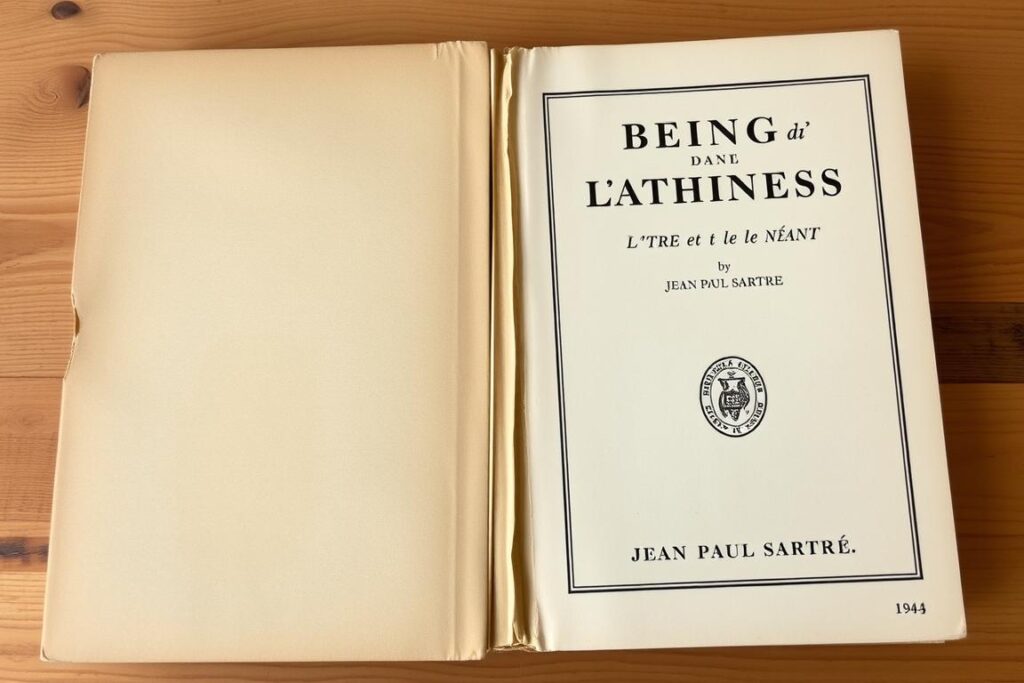
The Concept of Bad Faith in Sartre’s Philosophy
One of Sartre’s most influential and enduring concepts is that of “bad faith” (mauvaise foi). Bad faith refers to various forms of self-deception through which individuals deny or evade their fundamental freedom and responsibility. It is a lie to oneself, but unlike ordinary lying, the person in bad faith is both the deceiver and the deceived.
In “Being and Nothingness,” Sartre provides several vivid examples of bad faith. One of the most famous is that of the café waiter who performs his role with excessive precision and mechanistic movements. The waiter is playing at being a waiter, treating himself as if he were a thing—a waiter-thing—rather than a free consciousness who happens to be working as a waiter. By identifying completely with his role, he denies his transcendence and freedom to be otherwise.
Another example Sartre provides is that of a woman on a first date who leaves her hand in her companion’s grasp while ignoring the gesture. By treating her hand as a thing separate from herself, she avoids having to make a decision about whether to accept or reject her companion’s advances. She is in bad faith because she denies her freedom to choose in this situation.
Forms of Bad Faith
Consequences of Bad Faith
Bad faith can take many forms, but all involve a flight from freedom and responsibility. Some people deny their facticity, pretending they are not what they are (like a person who denies their past actions). Others deny their transcendence, reducing themselves to their facticity (like someone who claims “I’m just naturally lazy” to avoid taking responsibility for their choices). In both cases, individuals deny the fundamental structure of human reality as both facticity and transcendence.
Sartre’s concept of bad faith has profound ethical implications. By showing how we deceive ourselves about our freedom and responsibility, Sartre challenges us to confront the uncomfortable truth of our condition: that we are entirely responsible for who we are and what we do. Overcoming bad faith is essential for living authentically, which requires acknowledging both our freedom and the responsibility it entails.
Explore Sartre’s Original Works
Dive deeper into Sartre’s philosophical concepts by reading his original texts. Our curated reading list provides the perfect starting point.
Sartre’s Literary Works: Philosophy Through Fiction and Drama
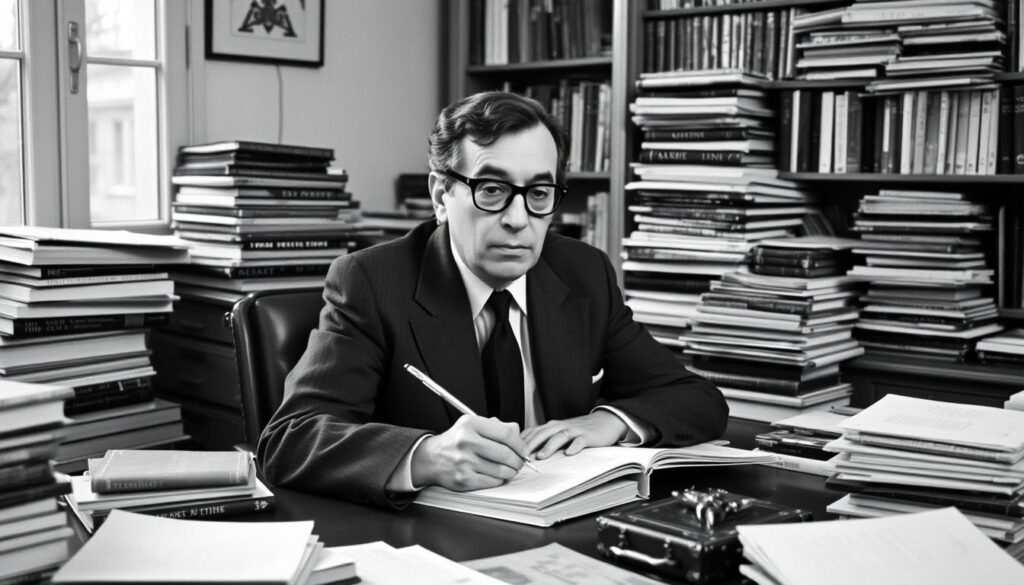
While Sartre is often remembered primarily as a philosopher, he was equally accomplished as a novelist, playwright, and literary critic. Indeed, his literary works were not separate from his philosophical project but served as vehicles for expressing and exploring his existentialist ideas in more accessible and concrete forms. Through fiction and drama, Sartre was able to illustrate the lived experience of existentialist concepts like freedom, choice, and authenticity.
Sartre’s first novel, “Nausea” (1938), is widely regarded as one of the canonical works of existentialist literature. The novel follows Antoine Roquentin, a historian who experiences a profound sense of disgust (nausea) when confronted with the contingency and absurdity of existence. Through Roquentin’s journal entries, Sartre explores the experience of recognizing that existence precedes essence—that things simply exist without reason or purpose, and it is up to humans to create meaning. The novel’s vivid descriptions of Roquentin’s physical and psychological experiences make tangible the abstract philosophical concept of existential angst.
Following “Nausea,” Sartre began work on a trilogy of novels collectively titled “The Roads to Freedom.” The three completed volumes—”The Age of Reason” (1945), “The Reprieve” (1945), and “Troubled Sleep” (1949)—follow the character Mathieu Delarue and his circle of friends as they navigate the political and moral challenges of pre-war and wartime France. Through these characters, Sartre explores how individuals confront their freedom and responsibility in the face of historical events that seem to limit their choices.
Sartre’s Major Plays and Their Existentialist Themes
| Play | Year | Key Existentialist Themes |
| The Flies | 1943 | Freedom, responsibility, rejection of traditional morality |
| No Exit | 1944 | Interpersonal conflict, the gaze of others, self-definition |
| Dirty Hands | 1948 | Political commitment, moral ambiguity, action vs. ideology |
| The Devil and the Good Lord | 1951 | Absence of God, moral autonomy, human freedom |
| The Condemned of Altona | 1959 | Historical responsibility, guilt, self-deception |
Sartre’s plays further developed his existentialist themes in dramatic form. “No Exit” (1944), perhaps his most famous play, depicts three deceased characters trapped in a room together for eternity, leading to the famous line “Hell is other people.” The play illustrates Sartre’s ideas about how our sense of self is shaped by the gaze of others and how interpersonal relationships can become a site of conflict and objectification.
In “The Flies” (1943), Sartre retells the Greek myth of Orestes and Electra to explore themes of freedom, responsibility, and the rejection of traditional morality. “Dirty Hands” (1948) examines the moral complexities of political commitment and revolutionary action. Through these and other plays, Sartre was able to dramatize existentialist dilemmas, making them more immediate and accessible to audiences.
Sartre’s literary criticism, collected in works like “What Is Literature?” (1947) and his studies of Baudelaire, Genet, and Flaubert, further extended his existentialist analysis to the realm of literary creation and reception. For Sartre, literature was not merely aesthetic but had a social and political function—to reveal the world to readers in a way that emphasizes their freedom to change it.
Sartre’s Political Activism and Engagement
Jean Paul Sartre’s philosophical commitment to freedom and responsibility extended beyond theory into active political engagement. Throughout his life, Sartre positioned himself as an engaged intellectual whose writings and actions addressed the pressing political issues of his time. His political trajectory reflects both the consistency of his commitment to human freedom and the evolution of his thinking about how best to realize that freedom in concrete historical circumstances.
During World War II, Sartre’s political consciousness was awakened by the German occupation of France. Though his resistance activities were limited—he participated in the founding of the underground group “Socialism and Liberty” and contributed to resistance publications—the experience of occupation profoundly shaped his understanding of freedom and commitment. In his essay “Paris Under the Occupation,” Sartre analyzed how the seemingly “correct” behavior of German soldiers entrapped Parisians into complicity with the occupation, accepting what was unnatural as natural.

After the war, Sartre became increasingly involved in left-wing politics. Though he never joined the French Communist Party, he was for a time a fellow traveler, defending the Soviet Union and advocating for Marxism as a framework for understanding and transforming society. His relationship with communism was complex and evolved over time. Initially sympathetic to the Soviet project, he later became critical of Soviet authoritarianism, particularly after the Soviet invasion of Hungary in 1956.
In “Critique of Dialectical Reason” (1960), Sartre attempted to reconcile existentialism with Marxism, developing a theory of history that preserved a place for individual freedom within the material and social conditions that shape human possibilities. This work represented Sartre’s most sustained engagement with Marxist thought and his effort to develop a more historically and socially grounded understanding of human freedom.
Sartre was also a vocal critic of French colonialism. During the Algerian War of Independence (1954-1962), he strongly supported the Algerian National Liberation Front (FLN) and was one of the signatories of the “Manifesto of the 121,” which defended the right of French soldiers to refuse to serve in Algeria. His preface to Frantz Fanon’s “The Wretched of the Earth” (1961) further articulated his anti-colonial position, though his endorsement of revolutionary violence in this text has been controversial.
In the 1960s and 1970s, Sartre supported various revolutionary movements and causes, from the Cuban Revolution to the student and worker protests of May 1968 in France. He was arrested for civil disobedience during these protests, though President Charles de Gaulle intervened to release him, reportedly saying, “You don’t arrest Voltaire.” In his later years, Sartre became increasingly involved in direct action and street politics, moving away from traditional intellectual activities toward more immediate forms of political engagement.
Throughout his political evolution, Sartre maintained his commitment to freedom and his belief in the responsibility of intellectuals to engage with the political issues of their time. His example continues to inspire debates about the proper role of intellectuals in political life and the relationship between philosophical principles and political action.
Sartre and Simone de Beauvoir: An Intellectual Partnership

The relationship between Jean Paul Sartre and Simone de Beauvoir stands as one of the most famous intellectual partnerships of the 20th century. They met in 1929 while preparing for the agrégation, the competitive examination for teaching positions in France. De Beauvoir placed second to Sartre’s first—the youngest person ever to pass the examination. This academic encounter marked the beginning of a relationship that would last until Sartre’s death in 1980.
Sartre and de Beauvoir never married, rejecting what they considered the bourgeois institution of marriage. Instead, they established what de Beauvoir called an “essential love,” complemented by “contingent loves” with others. This arrangement, radical for its time, reflected their existentialist commitment to creating their own values rather than accepting conventional morality. Their relationship was based on intellectual partnership, emotional support, and a shared commitment to philosophical and political engagement.
As philosophers, Sartre and de Beauvoir influenced each other’s thinking in profound ways. They regularly read and critiqued each other’s work, engaging in ongoing dialogues that shaped their respective philosophical developments. While Sartre is often credited as the primary existentialist philosopher, de Beauvoir made significant contributions to existentialist thought, particularly in applying existentialist principles to understanding women’s situation in her groundbreaking work “The Second Sex” (1949).
“One is not born, but rather becomes, a woman.”
De Beauvoir’s application of existentialist concepts to gender analysis revealed how women are constructed as “the Other” in relation to men, denied the status of full subjects capable of transcendence. This analysis extended Sartre’s concepts of freedom and bad faith into new territory, showing how social and historical conditions can limit the exercise of freedom in ways that Sartre’s more individualistic analysis sometimes overlooked.
Together, Sartre and de Beauvoir embodied the ideal of the engaged intellectual. In 1945, they founded the influential journal “Les Temps Modernes,” which became a platform for existentialist ideas and political commentary. Through this journal and their various writings, they shaped the intellectual landscape of post-war France and beyond, addressing philosophical, literary, and political issues with a commitment to freedom and social justice.
Their relationship was not without tensions and contradictions. Critics have pointed to discrepancies between their existentialist ethics and some of their personal behaviors, particularly in their relationships with others. Nevertheless, their partnership represents a remarkable attempt to live according to their philosophical principles, creating a relationship based on freedom, honesty, and intellectual equality rather than traditional gender roles and expectations.
Discover Sartre’s Essential Quotes
Access a curated collection of Sartre’s most powerful and thought-provoking quotes, organized by theme for easy reference.
Critical Reception and Controversies
Sartre’s philosophical and literary work has generated both fervent admiration and sharp criticism since its inception. His ideas have been embraced, challenged, and reinterpreted across various intellectual traditions, reflecting both their provocative nature and their enduring relevance to fundamental questions of human existence.
Within the philosophical community, Sartre’s existentialism has faced criticism from multiple directions. Analytic philosophers often criticized Sartre’s writing style as unnecessarily obscure and his arguments as lacking rigorous logical structure. Heidegger, whose work influenced Sartre, distanced himself from Sartre’s interpretation of his ideas, arguing in his “Letter on Humanism” that Sartre had misunderstood the question of Being by reducing it to a matter of human subjectivity.
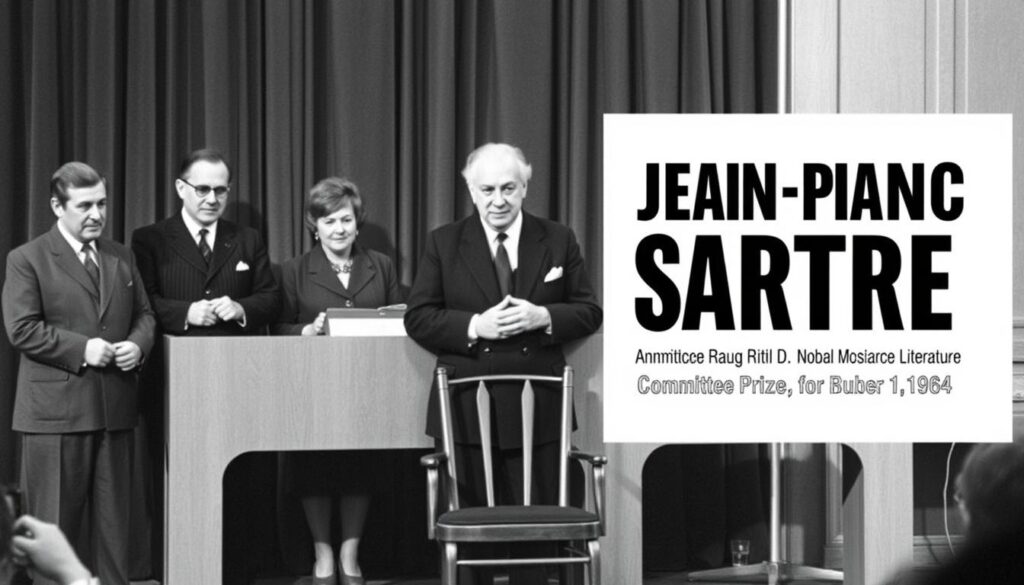
Marxist critics, including Sartre’s contemporary Louis Althusser, challenged Sartre’s attempt to reconcile existentialism with Marxism, arguing that his emphasis on individual freedom and consciousness was incompatible with Marxist materialism and class analysis. From a different angle, religious thinkers criticized Sartre’s atheism and his claim that human existence is absurd without God, arguing that this view leads to moral relativism and nihilism.
Feminist critics, including Simone de Beauvoir herself, have pointed out limitations in Sartre’s analysis of freedom and oppression. While Sartre recognized various forms of social oppression, his early work tended to emphasize individual freedom in a way that sometimes underestimated the impact of systemic inequalities, particularly those based on gender. De Beauvoir’s “The Second Sex” can be read partly as an extension and critique of Sartre’s existentialism, showing how gender shapes the possibilities for exercising freedom.
Major Criticisms of Sartre’s Philosophy
Strengths Acknowledged by Critics
- Powerful analysis of human freedom and responsibility
- Insightful descriptions of psychological states like anxiety and bad faith
- Effective integration of philosophy with literature and politics
- Influential critique of deterministic views of human nature
- Compelling account of interpersonal relationships
Common Criticisms
- Overemphasis on individual freedom at expense of social determinants
- Insufficient attention to material conditions of existence
- Unnecessarily obscure writing style
- Inconsistencies between early existentialism and later Marxism
- Overly pessimistic view of human relationships
Politically, Sartre’s positions have also generated controversy. His support for the Soviet Union in the early Cold War period, despite growing evidence of Stalinist repression, has been criticized as a moral failure. Similarly, his endorsement of revolutionary violence in anti-colonial struggles, particularly in his preface to Fanon’s “The Wretched of the Earth,” has been both defended as a necessary response to colonial violence and criticized as a dangerous romanticization of violence.
Perhaps the most famous controversy involving Sartre was his refusal of the Nobel Prize for Literature in 1964. Sartre declined the prize, explaining that he did not wish to be “transformed into an institution” and that a writer should not allow himself to be “institutionalized.” This decision reflected Sartre’s commitment to maintaining his independence as an intellectual and his wariness of official recognition that might compromise his freedom to criticize established institutions.
Despite these controversies—or perhaps because of them—Sartre’s work continues to provoke debate and inspire new interpretations. The very aspects of his thought that have been most criticized, such as his emphasis on radical freedom and his attempt to combine existentialism with political engagement, are also what make his work continually relevant to contemporary philosophical, literary, and political discussions.
Sartre’s Legacy in Contemporary Thought and Culture

More than four decades after his death, Jean Paul Sartre’s influence extends far beyond philosophy departments into various domains of contemporary thought and culture. His existentialist ideas have permeated literature, film, psychology, political theory, and popular culture, demonstrating their enduring relevance to fundamental questions of human existence and social organization.
In philosophy, Sartre’s existentialism has influenced subsequent developments in phenomenology, hermeneutics, and post-structuralism. Philosophers like Maurice Merleau-Ponty, Michel Foucault, and Jacques Derrida engaged critically with Sartre’s ideas, developing new approaches that both built upon and departed from his existentialist framework. Contemporary discussions of agency, authenticity, and intersubjectivity continue to reference Sartre’s analyses, even when moving beyond his specific formulations.
Sartre’s impact on literature and literary theory has been equally significant. His concept of “committed literature” (littérature engagée), which holds that writing should engage with social and political issues rather than pursue art for art’s sake, has influenced generations of writers. His literary works, particularly “Nausea” and his plays, continue to be read and performed, introducing new audiences to existentialist themes through compelling narratives and characters.
In psychology and psychotherapy, Sartre’s critique of Freudian psychoanalysis and his alternative account of human psychology have informed various approaches, particularly existential psychotherapy. His analyses of bad faith, authenticity, and the dynamics of interpersonal relationships provide conceptual tools for understanding psychological struggles and the possibilities for personal transformation.
Sartre’s Influence Across Disciplines
Philosophy
Arts & Culture
Social Sciences
Politically, Sartre’s model of the engaged intellectual who combines theoretical analysis with practical commitment continues to inspire scholars and activists. His critiques of colonialism and capitalism, his defense of freedom and self-determination, and his insistence on the responsibility of intellectuals to address the pressing issues of their time remain relevant to contemporary political struggles.
In popular culture, existentialist themes derived from Sartre’s work appear in films, music, and literature, often in simplified or modified forms. Concepts like existential angst, the absurdity of existence, and the burden of freedom have become part of the cultural lexicon, referenced in contexts ranging from serious artistic works to comedic takes on the human condition.
Perhaps most importantly, Sartre’s fundamental questions about freedom, responsibility, authenticity, and the meaning of human existence continue to resonate with individuals grappling with these issues in their own lives. In a world where technological, economic, and social changes often outpace our ability to make sense of them, Sartre’s insistence that we must create meaning through our choices and actions offers both a challenge and a source of hope.
As we face contemporary crises—from climate change to political polarization to technological disruption—Sartre’s vision of human beings as fundamentally free and responsible for creating their world through their choices remains a powerful framework for understanding our situation and possibilities. His legacy lives on not just in academic discussions but in the everyday struggles of individuals seeking to live authentically in a complex and often bewildering world.
Explore Related Existentialist Thinkers
Discover how Sartre’s ideas connect with other major existentialist philosophers like Camus, Heidegger, and Kierkegaard.
Conclusion: The Enduring Relevance of Jean Paul Sartre

Jean Paul Sartre’s intellectual journey spanned some of the most tumultuous decades of the 20th century, from the rise of fascism through World War II to the Cold War and decolonization struggles. Throughout these changing historical circumstances, he maintained a commitment to human freedom and responsibility that forms the core of his philosophical legacy. Whether writing dense philosophical treatises, compelling novels and plays, or engaged political commentary, Sartre consistently returned to the fundamental question of what it means to be human in a world without predetermined meaning or purpose.
Sartre’s existentialism offers a powerful response to this question. By placing freedom at the center of human existence, he provides a framework for understanding both the burden and the possibility of human life. We are “condemned to be free,” responsible for creating meaning through our choices and actions in a world that does not come with ready-made values or purposes. This vision can be terrifying in its implications—there is no escape from responsibility, no external authority to validate our choices—but it is also profoundly liberating, affirming our capacity to shape our lives and our world.
The concepts Sartre developed to articulate this vision—bad faith, authenticity, the look, the fundamental project—provide tools for analyzing the ways we evade our freedom and responsibility, as well as the possibilities for living more authentically. These concepts remain relevant to contemporary discussions of identity, agency, and social relations, offering insights that extend beyond their original philosophical context.
Sartre’s integration of philosophy with literature, politics, and everyday life also represents an enduring contribution. By expressing philosophical ideas through various forms—from technical philosophical works to novels, plays, and political essays—he demonstrated that philosophy is not an abstract academic exercise but a vital engagement with the concrete realities of human existence. His model of the engaged intellectual who combines theoretical analysis with practical commitment continues to inspire scholars and activists who seek to connect philosophical reflection with social and political action.
As we navigate the complexities of the 21st century—facing challenges from technological disruption to climate change to political polarization—Sartre’s insistence on human freedom and responsibility remains a valuable resource. His vision reminds us that even in the face of seemingly overwhelming forces, we retain the capacity to make choices, create meaning, and work toward a more just and humane world. In this sense, Sartre’s legacy is not just a set of philosophical doctrines but a challenge to live authentically and responsibly in whatever circumstances we find ourselves.
In his own words, from his autobiographical work “The Words”: “What I have just written is false. True. Neither true nor false, like everything one writes about madmen, about men.” This characteristic blend of assertion and self-questioning captures something essential about Sartre’s intellectual legacy—a commitment to truth that recognizes its own contingency, a vision of human possibility that acknowledges its own limitations. It is this combination of conviction and critical self-awareness that makes Sartre’s work continue to resonate with readers seeking to understand themselves and their world.


